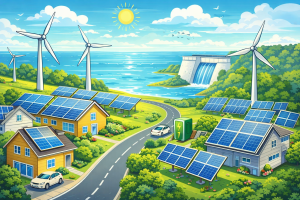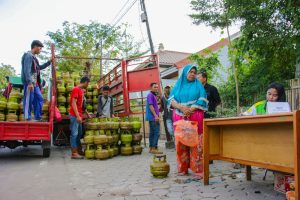Jakarta – Civil society groups are pushing to encourage the parliament (DPR) and the government to create an entity responsible for taking action against environmental law violations, as well as making climate change laws.
In a written release, Tuesday (31/5), the National Executive Director of the Indonesian Forum for the Environment (Walhi) Zenzi Suhadi, said that “if the DPR wants to reduce disaster risk in Indonesia, the first requirement must be a Law on Climate Change. Second, there must be a special commission for environmental and natural resource law enforcement.”
Based on data from the National Disaster Management Agency (BNPB), 95% of disasters in Indonesia are hydrometeorological or climate-related disasters, such as floods and hurricanes related to climate. In fact, climate change is a new threat that is already visible
Among them are Tropical Cyclone Seroja which hit East Nusa Tenggara last year, where for years no disaster of that scale had happened. According to Suhadi, it is necessary to mitigate man-made disasters, and disasters that occur due to climate change.
North coast tidal flood
Coordinator of the Climate Change Adaptation Project at the Bintari Semarang Foundation Muhammad Arif, said that a clear example of the impact of climate change was the tidal flood that hit a number of cities on the north coast of Central Java.
The tidal flood that occurred in Semarang City last weekend became an alarm for the sustainability of the lives of the surrounding community. He said repeated incidents will have more impact in the future if there are no appropriate disaster mitigation measures.
“The conditions yesterday were extraordinary. infrastructure provided by the community. Floods have not occurred on a significant scale for the last 10 years. The level of vigilance from the community or all parties is lacking,” he said.
Suhadi said there are three geographical factors that make Indonesia have to deal with disaster risk, namely being in the ‘Pacific ring-of-fire’ or the chain of volcanoes in Indonesia, the country being in the form of an archipelago, and tropical forest areas.
Therefore, Indonesia must always be ready to deal with volcanic and tectonic earthquakes. According to him, Indonesia must be ready to reduce disaster risk, for example by not carrying out development in the tsunami red zone.
Furthermore, Suhadi said that Indonesia should be able to prevent hydrometeorological disasters, drought, or smoke. “DPR should review legislation products that can trigger disasters,” he added.
Climate change, he said, is also a factor influencing hydrometeorological disasters. Indonesia as an archipelagic country has a big risk with climate change. (Hartatik)















